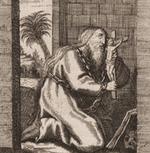Catholic World News News Feature
Medjugorje apparition claims are divisive, bishop warns July 04, 2006
The Catholic bishop whose diocese includes the town of Medjugorje has warned that "something similar to a schism" has arisen at the parish church where apparitions of the Virgin Mary are alleged to take place.
In a homily delivered in Medjugorje on the feast of Corpus Christi, Bishop Ratko Peric of Mostar-Duvno, in Bosnia-Herzegovina, said that both he and his predecessor have expressed severe misgivings about the reported apparitions. He added that both Pope John Paul II and Pope Benedict XVI backed the judgments of the local bishops.
In his homily Bishop Peric explained that-- "while recognizing the Holy Father's right to give a final decision" on the validity of the reported apparitions-- he doubted their validity. He recalled that when he discussed the reports from Medjugorje with Vatican officials, including then-Cardinal Joseph Ratzinger at the Congregation for the Doctrine of the Faith, they shared his incredulity.
"They particularly do not seem to be authentic," the bishop observed, "when it is known before that these so-called 'apparitions' will occur." Bishop Peric cited the schedule that the Medjugorje seers have provided, listing the times and places at which they claim the next visits by the Mother of God will occur. Thousands of messages from Mary are now claimed, and the bishop observed that "the flood of so-called apparitions, messages, secrets, and signs do not strengthen the faith, but rather further convince us that in all of this there is nothing neither authentic nor established as truthful."
The first reported appearances of the Virgin at Medjugorje occurred just over 25 years ago. During the 1980s, thousands of Catholic flocked to the little town, with many reporting profound spiritual experiences. These pilgrimages were eventually slowed by the violent bloodshed that tore through the region in the 1990s and by the increasingly public skepticism of the hierarchy.
Bishop Peric reminded his people of the restrictions that he has imposed on activities in Medjugorje. The parish church is not formally a "shrine," he said, and should not be characterized as such. Pilgrimages to the church are discouraged. Priests there are "not authorized to express their private views contrary to the official position of the Church on the so-called 'apparitions' and 'messages,' during celebrations of the sacraments, nor during other common acts of piety, nor in the Catholic media."
The bishops urged the "seers" of Medjugorje to "demonstrate ecclesiastical obedience and to cease with these public manifestations and messages in this parish."
Some of the Franciscan priests assigned to the Medjugorje parish, he said, have been expelled from their order because of their refusal to accept Church authority. "They have not only been illegally active in these parishes, but they have also administered the sacraments profanely, while others invalidly," he said. As Bishop of Mostar-Duvno, he said, he felt obliged to warn the faithful "who invalidly confess their sins to these priests and participate in sacrilegious liturgies."



